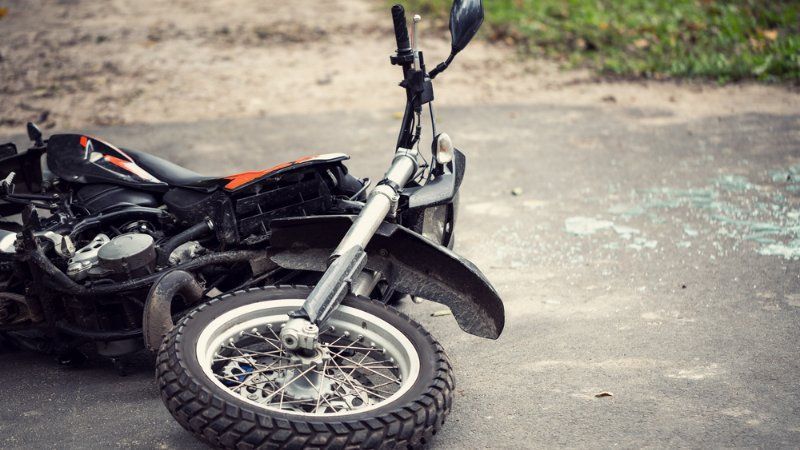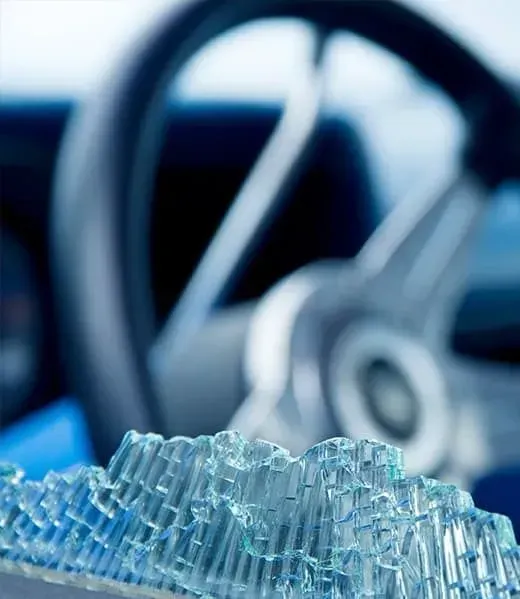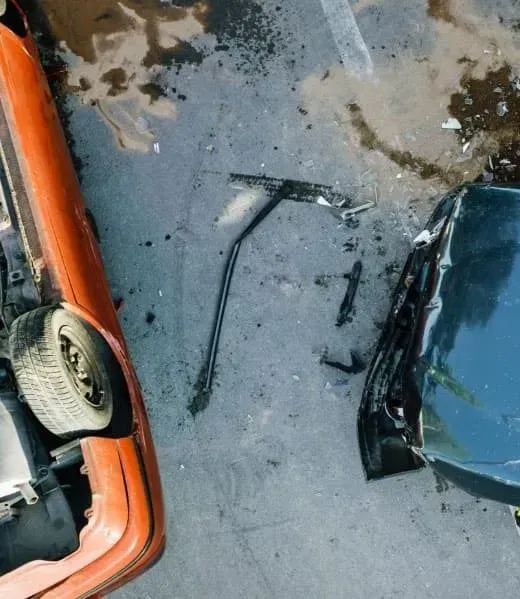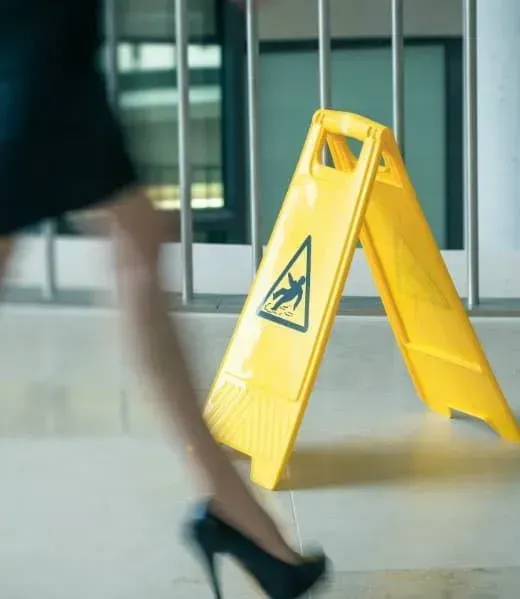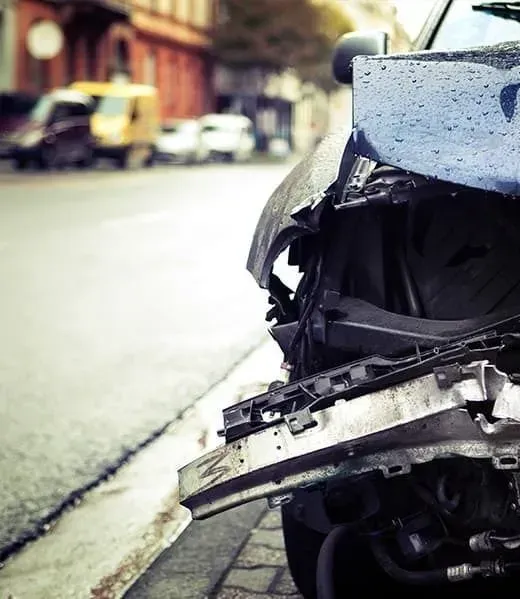Experienced Personal injury attorneys in Phoenix, AZ
Serving Arizona, california, and colorado
Dedicated to the best results for our clients, every time.

Available 24/7
Free Consultation
Experienced Personal injury attorneys in Phoenix, AZ
Serving Arizona, california, and colorado
Dedicated to the best results for our clients, every time.

Personal Touch
At Sargon Law Group, we have helped countless individuals and families. When you hire Sargon Law Group, you get a direct line to the attorney working for and with you.
Expert Litigators
The Phoenix personal injury attorneys at Sargon Law Group are ranked in the TOP 1% and bring decades of experience, insurance expertise and litigation knowledge to put our clients in the best position.
Proven Results
We outperform other attorneys and our clients see the difference. Clients know they have the right team on their side when they hire Sargon Law Group.
Phoenix Personal Injury Attorneys
Sargon Law Group is a trial law firm with locations in Phoenix and Chandler, Arizona, Encino, California, and Denver, Colorado. We are dedicated to helping injured clients secure the compensation they need for a better future. We bring a compassionate and personalized experience to our clients, delivering the best results for them. Our firm provides legal services in the following areas: personal injury, car accidents, and workers’ compensation, with an emphasis on personal injury. Contact us online or by calling (623) 225-5635 for a free consultation today.
We understand the challenges our clients face after an accident or injury, and we treat every client with the greatest care. Whether you suffered an injury due to someone else’s carelessness or are seeking assistance in one of our other practice areas, contact us today to schedule a free case consultation with one of our qualified injury attorneys. We are here to help ease the process for you and bring you the closure and compensation you deserve.
What Sets Our Law Firm Apart?
When you hire our Phoenix personal injury attorneys at Sargon Law Group, you are getting a team with the resources, skill level, and experience needed to bring you the best results. We promise you the following when we take your case:
- Personal Touch: You get a direct line to the attorney working for and with you.
- Expertise: We bring decades of experience, insurance expertise, and litigation know-how to put our clients in the best position.
- Results: We outperform other attorneys and our clients can see the difference. We are the firm that other attorneys hire when they need a lawyer on their side they can trust.
- Accommodation and Availability: We offer trilingual services for our clients and we are available to answer your questions 24/7.
- Cost-effective: We accept cases on a contingency fee basis, meaning you do not pay us until we recover compensation for you.
Accidents can happen at any time, whether you are in Mesa, Phoenix, Glendale, Chandler, or anywhere in the valley. If you have been hurt in a preventable accident, you deserve attorneys who understand what you’re going through. The experienced Phoenix personal injury lawyers at Sargon Law Group work to preserve your rights. Throughout your case, we work with you to ensure you receive compensation for injuries sustained due to someone else’s negligence or intentional act.
Our personal injury lawyers in Phoenix have helped countless individuals. We built Sargon Law Group on the notion that all of our clients will be treated with the greatest care and confidence and can receive comprehensive client service throughout the duration of their case from qualified attorneys. You communicate directly with our attorneys and are not just another file.

Our clients are treated with the greatest care and have qualified Phoenix attorneys to work with throughout the duration of their case, that in turn provides confidence in the representation. We serve clients all over Arizona, California and Colorado.
$600K
Car Accident Settlement
Driver was hit on the freeway and suffered serious back and neck injuries. We recovered full policy limits from the insurance companies for our client.
$625K
Wrongful Death Settlement
Apartment complex failed to provide air conditioning in the heat of the summer. Father died from heat stroke. The apartment management blamed the family.
$500K
Auto Accident Settlement
Vehicle t-boned by reckless driver. Passenger sustained injuries requiring surgery. Sargon Law Group reduced the medical bills and secured a maximum policy limit settlement.
$350K
Automobile Passenger Accident Settlement
Vehicle side-swiped on highway. Passenger suffered serious back injuries. Insurance companies fought liability and damages. We obtained full policy limit settlements.
How Long Do I Have to File an Arizona Personal Injury Claim?
Arizona has a statute of limitations that may affect any claim you make after an accident. You generally must file a personal injury lawsuit within two years of the accident date. Some claims expire within 180 days. However, if you have an injury that didn’t present until long after the crash, the time may start on the date you discover the injury. As more time passes, evidence may disappear, witnesses can forget details, and the cause of your injuries becomes harder to prove. The sooner you take action, the better the chance you have to reach an agreeable settlement. Contact us today to get started on your personal injury claim.

We understand the overwhelming nature of accidents and injuries.
What Kind of Cases Do Personal Injury Lawyers Handle?
Personal injury law allows you to seek compensation for damages through a personal injury claim. Hiring a Phoenix personal injury attorney experienced with your type of accident can help you obtain the maximum settlement for your injuries.
Car Accidents
One of the most common types of personal injury cases in Phoenix, AZ are car accidents that are often the result of human error. A crash could be due to speeding or distracted driving. Our Phoenix car accident attorneys have handled many accidents occurring at intersections when drivers fail to stop at a red light or stop sign. This can result in a rear-end collision, T-bone crash, or head-on collision.
Motorcycle Accidents
A beautiful day can become disastrous in the blink of an eye. Cars and trucks have frames, airbags, and other protective equipment that can help keep occupants safe. The lack of protection means the majority of motorcycle accidents result in severe injuries. Our team of motorcycle accident lawyers in Phoenix know that even when the motorcyclist follows the road rules, many drivers look but don’t see it coming, resulting in a collision.
Big Truck Accidents
Tractor-trailer trucks can weigh up to 80,000 pounds when loaded. Stopping takes longer, and maneuvering is more challenging than a car in the best circumstances. Overloaded trucks, inexperienced drivers, and poorly maintained equipment are among the factors that may result in an accident with devastating consequences.
Wrongful Death
If a person loses a loved one due to the negligence or misconduct of others, there may be grounds for a wrongful death claim. Our compassionate Phoenix wrongful death attorneys handle these types of lawsuit to help seek financial compensation for the family’s losses, including lost wages, emotional pain, lost companionship, and funeral expenses.
Premises Liability
Failure to keep the property safe for visitors often results in premises liability. When a person sustains injuries on a property owned by another, they may file a lawsuit for damages. Situations that may end in a compensation claim include:
- Slip and fall accidents
- Restaurant/Retail store liability
- Dog bites
- Negligent security or safety measures
- Children on property
In situations that involve children, the property owner may owe a higher duty of care.
Catastrophic Injuries
Injuries that leave victims with permanent damage and prevent them from performing gainful work are typically considered catastrophic. Our specialized Phoenix catastrophic injury lawyers handle these injury claims which often result in physical damage to the brain or spinal cord injury, which may be debilitating and have a long-term impact on a person’s functional capabilities. A brain injury lawyer in Phoenix can help victims recover financial compensation for their injuries. A settlement can help pay for medical expenses, ongoing medical care, medication, and devices necessary to enable the accident victim to function.
How Much Is My Personal Injury Case Worth in Phoenix?
There is no set amount of compensation paid to personal injury victims if their claim is successful. Without fully examining the facts of your case, we cannot give you a solid answer about how much your personal injury claim in Phoenix is worth. However, we can tell you some of the factors that will go into compensation amounts. This includes, but is not limited to, the following:
- Injury severity
- How long it takes to recover
- Whether or not you were able to work while recovering
- The amount of household assistance you need
- Property damage expenses
- Calculable pain and suffering damages
- Whether or not there was any shared fault
When our personal injury attorneys in Phoenix are working to help clients calculate total expected losses, we will enlist assistance from medical, economic, and financial experts who can evaluate these factors. These individuals can provide testimony to insurance carriers or to a personal injury jury.
Types of Compensation Available in a Phoenix Personal Injury Claim
Personal injury victims in Phoenix and throughout Arizona may be entitled to various types of personal injury compensation if another individual causes their injury. We work diligently at Sargon Law Group to recover both economic and non-economic compensation on behalf of accident victims we help. This includes, but is not limited to, the following:
- Total coverage of all medical bills, including emergency expenses as well as all follow up medical visits
- Coverage of physical therapy, rehabilitation, prescription medications, and medical devices
- Property damage expenses for anything destroyed in the incident
- Lost wages if a person cannot work while they recover from their injuries
- Physical and emotional pain and suffering damages
- Loss of quality of life damages
When Can You Collect Damages in a Personal Injury Case?
We have discussed the types of damages that may be available for a personal injury claim in Phoenix, but injury victims need to know when they may be able to get compensation if their case is successful. Just like everything else related to a personal injury case, this is very specific to each particular situation. If an injury claim is resolved with insurance carriers relatively quickly, victims may be able to recover compensation within a few weeks or a few months after the incident occurs. Usually, this will come in a lump sum settlement check from the insurance carrier.
In the event a lawsuit does get filed in court, the case may move toward trial. If the claim gets settled before going to a jury, then it may only take a few weeks for the injury victim to receive a settlement check from the at-fault party or their insurance carrier. If the case does go to trial, the victim could recover compensation after a successful jury verdict, but this could be delayed if the defendant appeals the jury’s decision.
What To Do After an Injury
After sustaining an injury, there are various steps that an accident victim needs to take. This includes:
- Seeking medical care. The most important aspect of a claim is ensuring you seek medical treatment as soon as possible. Any delay in medical care will give the insurance carrier a reason to scrutinize the claim more closely and ask about the delay. Additionally, it is important to continue medical treatment until given the all-clear by the doctor.
- Securing evidence. There will be various types of evidence that should be gathered and kept secure. This includes any evidence gathered at the scene of the incident (videos, witness contact info, photos, articles of clothing, etc.). You should keep any medical records and medical bills associated with the injury and treatment.
- Calling an attorney. A Phoenix personal injury lawyer should get involved as soon as possible so they can begin their investigation. Your lawyer is your advocate, and they will handle everything on your behalf, including the negotiations with insurance companies and at-fault parties.
Determining Negligence in a Personal Injury Claim
Determining negligence after a personal injury in Phoenix can be difficult, which is why we strongly suggest that you seek legal assistance, at least an initial consultation. Negligence is a challenge to prove, even if the case seems cut and dry. A skilled lawyer will need to investigate the incident and work to recover as much evidence as possible.
Importantly, an attorney will need to show that the defendant initially owed a duty of care to the plaintiff, meaning they had some sort of responsibility to act safely to prevent injuries. An experienced Phoenix personal injury lawyer will then need to show that the defendant breached the duty of care somehow, and this will look different depending on the type of injury claim at hand. The breach of duty is typically where it will be shown that the defendant was negligent.
After showing that a breach of duty occurred, a lawyer will show how the breach caused the injury or injuries and that the plaintiff sustained some sort of monetary loss as a result.
What Is the Burden of Proof in a Personal Injury Case?
The burden of proof for a civil personal injury case is lower than the burden of proof needed for a successful criminal prosecution. In a criminal court, a person’s guilt must be proven beyond a reasonable doubt. However, in a civil case, a plaintiff can win if they can show that it is more likely than not the defendant caused the injury. This is called the preponderance of evidence standard. This is a lowered burden of proof than in criminal cases.
What if You’re Partially Responsible for an Injury
One of the most common tactics used by insurance carriers and at-fault parties is to try and shift some or all of the blame onto the injury or property damage victim. They do this in order to limit how much money they have to pay out of their own pocket. However, shifting blame will only work if there is adequate proof to support this.
Additionally, Arizona law operates under a “pure comparative negligence” system. This means that individuals can recover compensation even if they are up to 99% at fault for an incident. There will be an extensive investigation into each injury incident, and a person will receive reduced compensation based on their percentage of fault. For example, if a person is awarded $10,000 but is found to be 30% responsible for the incident because of their own negligence, they would receive 7,000 instead of the full $10,000.
Because of this shared fault law in Arizona, it is crucial for an injury victim to work with an attorney who can push back against any allegations of fault coming from the other parties involved.
What Are the Upfront Costs of Hiring a Personal Injury Lawyer in Phoenix?
There are many possible upfront costs that relate to a personal injury case, almost all of which will be taken on by the attorney when they work on a contingency fee basis. Some of these costs include the following:
- Initial Consultation – Most lawyers offer a free initial consultation to evaluate the case’s merits and determine if they can represent the client on a contingency fee basis.
- Investigation Expenses – Lawyers may need to gather evidence, obtain medical records, hire investigators, or consult experts to build a strong case. These expenses are usually covered by the lawyer upfront.
- Filing Fees – Court filing fees, document processing fees, and other administrative expenses incurred during the litigation process are borne by the lawyer initially.
- Expert Witness Fees – If expert witnesses are necessary to support the case, their fees and expenses are typically advanced by the lawyer.
- Deposition Costs – Taking depositions of witnesses or parties involved in the case may involve expenses for transcripts and court reporters, which the lawyer will handle upfront.
- Medical Records and Reports – Obtaining medical records, reports, and other relevant documents related to the injury might incur costs that the lawyer will pay initially.
- Travel Expenses – If the case requires traveling to gather evidence, attend hearings, or meet with clients, the lawyer will cover these expenses upfront.
- Trial Preparation – Costs related to preparing for trial, including exhibits, visual aids, and trial consultants, are typically paid for by the lawyer in contingency fee arrangements.
- Negotiation Costs – Any expenses incurred during settlement negotiations or mediation will be covered by the lawyer.
- Administrative Costs – Miscellaneous costs such as photocopying, postage, and long-distance calls related to the case are handled by the lawyer upfront.
WHAT OUR CLIENTS SAY
Clients know they have the right team on their side when they hire Sargon Law Group.
I must have called about 10 different firms before finally reaching Sargon Law Group
I must have called about 10 different firms before finally reaching Sargon Law Group and speaking to Sargon. He was extremely easy to talk to, knowledgeable, and very professional. Overall I would recommend this law firm to anyone who is looking for a trust worthy advocate to work with and help guide your case through the litigation process. Very pleased, thanks again!!
-Samantha Messina
We are so satisfied with the outcome and appreciate his professionalism and work ethic.
After my husband and I were hit in a car accident we were beyond frustrated with having to total out our car and with lots of neck and back pain. I'm so glad we found Sargon. He listened to us, responded quickly to our constant questions, communicated to all of the insurance companies and doctors, and got us the highest amount of money we could receive. We are so satisfied with the outcome and appreciate his professionalism and work ethic. This is the guy you want on your team!
-Mary Graham
Mr. Michael Morgan is attentive, supportive, kind and respectful.
Mr. Michael Morgan is attentive, supportive, kind and respectful. Each time I spoke with Mr. Morgan, he was very honest, knowledgeable and kept me up-to-date with what was going on with my case. I truly appreciate him very much. I hope not to need him again professionally, but if I do; undoubtedly, I would want him to represent me. He is a very good man and excellent attorney.
-Rose Mary Corona
Sargon was outstanding! Very professional and super responsive.
Always took the time to go over every detail of the case thoroughly and guided me all along. Got me exactly what I deserved! Very pleased with his work. I highly recommend Sargon at Sargon Law Group if you have a personal injury case. As good as it gets. Thank you!
-Andres Alonzo
Mr. Michael Morgan and his staff were more than generous, professional, courteous, informative and put my mind at ease.
Mr. Michael Morgan and his staff were more than generous, professional, courteous, informative and put my mind at ease. The only law firm You will ever need give him a call. Be very pleased, Michael Morgan explained the process; everything went through without a hitch. Don't take my word for it give him a call see for yourself is amazing man. Thank you Mr. Morgan and staff. I tell everyone about Mr. Morgan.
-Teresa Slonaker
I must have called about 10 different firms before finally reaching Sargon Law Group
I must have called about 10 different firms before finally reaching Sargon Law Group and speaking to Sargon. He was extremely easy to talk to, knowledgeable, and very professional. Overall I would recommend this law firm to anyone who is looking for a trust worthy advocate to work with and help guide your case through the litigation process. Very pleased, thanks again!!
-Samantha Messina
We are so satisfied with the outcome and appreciate his professionalism and work ethic.
After my husband and I were hit in a car accident we were beyond frustrated with having to total out our car and with lots of neck and back pain. I'm so glad we found Sargon. He listened to us, responded quickly to our constant questions, communicated to all of the insurance companies and doctors, and got us the highest amount of money we could receive. We are so satisfied with the outcome and appreciate his professionalism and work ethic. This is the guy you want on your team!
-Mary Graham
Bring the Best Together
Passion. experience. diligence.
Contact Sargon Law Group Today
When you are in need of compassionate and quality legal services, hire Sargon Law Group. At every stage of your case, our team of Phoenix personal injury attorneys will treat you with the care you deserve while also working to deliver the best results for you. Whether you are facing the aftermath of a tragic car accident, a premises liability injury, dealing with immigration issues, or are unsure of what steps to take next, our skilled Phoenix personal injury lawyers can help. We have decades of trial experience and knowledge in a range of personal injury practice areas, and the desire to fight for you.
Contact us today to schedule your free case consultation.
AWARDS, MEDIA AND ACCOLADES




Request Free Consultation
Use the form below to tell us about your legal inquiry, and we’ll call you back to schedule an appointment.
Contact Us
We will get back to you as soon as possible.
Please try again later.
